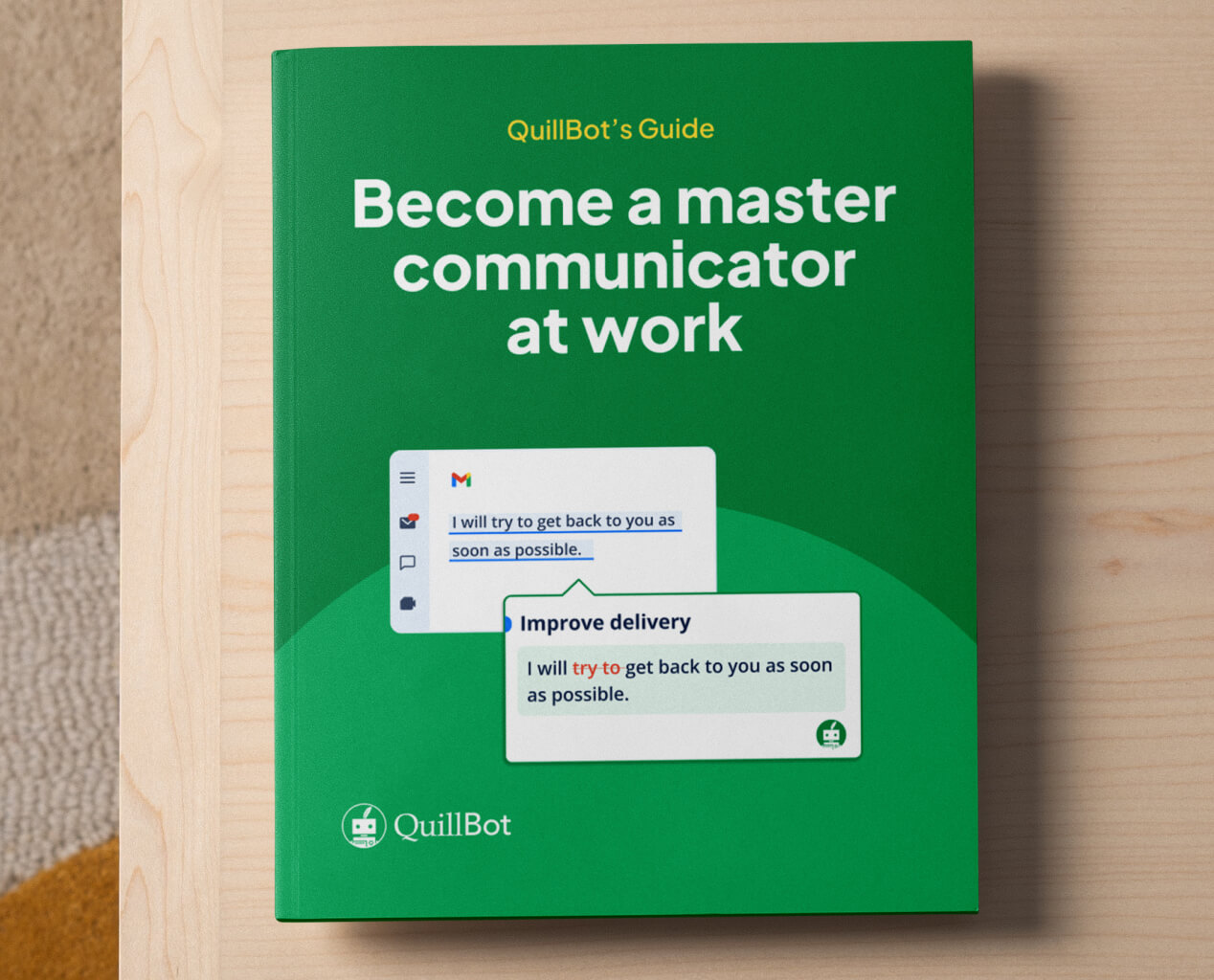Both till and until are correct and have the same meaning.
They can be used interchangeably, but “till” has a more informal effect, so is best avoided in formal writing—such as academic writing.
QuillBot’s free Paraphraser tool can help you to fine-tune the formality of your text.
Read this FAQ: Is it till or until?
Both until and ‘til are correct and have the same meaning.
They can be used interchangeably but “‘til” (written with an apostrophe before it) is informal, so is best avoided in formal writing such as a research paper.
QuillBot’s free Paraphraser tool can help you find the right level of formality for your text.
Read this FAQ: Is it until or til?
It is until, not untill.
The preposition and subordinating conjunction “until” is spelled with one “l.”
QuillBot’s free Grammar Checker will help you avoid common typos like “untill” instead of “until.”
Read this FAQ: Is it until or untill?
Its is a possessive adjective that means “belonging to it” (e.g., “The squirrel shook its tail”). Other possessive adjectives include
“my,” “your,” “her,” “his,” “its,” “our,” “their,” and “whose.”
Possessive adjectives do not have apostrophes like possessive nouns (e.g., “Shelly’s house” or “the dog’s blanket”). Possessives are also considered genitive case.
“Its” is sometimes confused for “it’s,” which isn’t a possessive but a contraction for “it is.”
The QuillBot Grammar Checker can help you find and fix errors with possessive adjectives and other uses of the genitive case. It can also help you avoid errors with Its versus it’s.
Read this FAQ: Is its possessive?
The phrase under par means “disappointing because it is below the expected standard” (e.g., “Although somewhat under par for a movie from this director, it’s still definitely worth seeing”). It’s interchangeable with “subpar,” which means the same thing.
“Feeling under par” means feeling slightly unwell (e.g., “I was feeling a bit under par this morning, but I’m full of energy now”).
“Under par” comes from the golf term “par,” but it’s not an accurate analogy. In the game of golf, a score that is under par is below zero, which is a desirable outcome because the lowest score wins.
When you’re curious about the meanings of idioms like “under par,” QuillBot’s AI Chat can give you instant answers.
Read this FAQ: What does under par mean?
The phrase under no circumstances means “never” or “in no situations” (e.g., “Under no circumstances should fire extinguishers be used to hold open doors”).
You can use QuillBot’s Grammar Checker to help ensure that you’re using the phrase “under no circumstances” correctly in your writing.
Read this FAQ: What does under no circumstances mean?
The correct use of dative case or objective case depends on what language you’re studying. In English, the three grammatical cases are nominative, genitive, and objective (which includes dative and accusative).
In some languages (e.g., German, Latin, and Russian), dative case is one of four or more total cases, including nominative, genitive, accusative, and dative.
Dative case applies to an indirect object that receives the direct object. For example, in “Mom bought him ice cream,” “him” is an indirect object, and “ice cream” is a direct object.
Dative case and accusative case in English both use object pronouns (e.g., “me”) or reflexive pronouns (e.g., “myself”) rather than subject pronouns (e.g., “I”). In other languages, the accusative and dative cases have different sets of rules.
When you’re writing sentences with indirect objects and direct objects, QuillBot’s free Grammar Checker can help you choose the correct object pronouns.
Read this FAQ: Is it dative case or objective case?
If a newspaper article is above the fold, it means that it is on the top half of the front page and therefore in the most important place (e.g., “The editor wants to run the article above the fold”).
The term “above the fold” is also used to refer to the upper part of a webpage or email that is visible without the user having to scroll down (e.g., “The most important links on the homepage should all be above the fold”).
If you’re ever writing something that’s above the fold, the QuillBot Grammar Checker will help you ensure that it’s error free.
Read this FAQ: What does above the fold mean?
If something is above reproach, it means that there is no reason to criticize it, especially in terms of moral correctness (e.g., “A judge’s conduct must be above reproach,” “The journal stated that the peer-reviewed article is above reproach and will not be retracted”).
QuillBot’s Paraphraser will help you to find alternatives for “above reproach” that fit that context of your text.
Read this FAQ: What does above reproach mean?
“Her and I” is not correct, but you can use “she and I” because they’re both nominative case pronouns that can be part of a compound subject (e.g., “She and I lived together during college”).
“Her” is not a nominative case pronoun but rather, an object pronoun. You can say “her and me” when you need the objective case (which includes the dative case and the accusative case).
- Dative case: The teacher gave her and me extra credit.
- Accusative case: Mom took her and me out to dinner.
When you combine two pronouns with “and,” they need to be in the same case.
QuillBot’s free Grammar Checker can instantly find and fix errors—such as “her and I”—in your writing.
Read this FAQ: Is it her and I or she and I?
